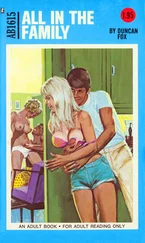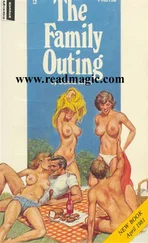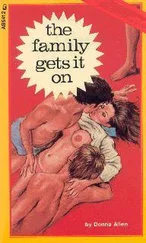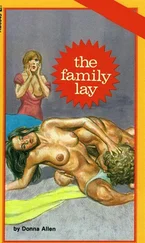A black BMW screeches out of the school parking lot onto the road as if it’s auditioning for an Extra-Specially-Reckless Driving bumper episode of Top Gear. I catch a fleeting glimpse of a cufflinked shirtsleeve and a man’s hand, waving. The boy waves back. He’s more sensible than his father. They’re both late—for school and work respectively—but only the boy realizes there’s no point hurrying when you’ve already missed half the morning. Might as well take your time.
“He’s a Bedlington,” I say. I’m such a dog novice, I don’t know if that’s a commonly used abbreviation, or if I should have said “Bedlington terrier.” I’m guessing the short version’s acceptable, since I’m pretty sure an Airedale is also a kind of terrier.
“How old?”
“Eight weeks.”
“Called?”
“His full name’s Figgy Pudding—that was the name his breeder gave him—but we call him Figgy.”
I’m braced for mockery, but the boy nods. “We’ve got a bull terrier called Woody, but his real name’s Cantorella Jumping Jack Flash. That’s what it says on his pedigree certificate.”
“From the Kennel Club, right?” Olwen told me about this.
“Yes. If your dog’s a purebred you can get a certificate with all his ancestors on. Woody’s ancestors have won loads of prizes. Have Figgy’s?”
“I don’t know.” I ought to thank him for helping me avoid a chore. I was probably never going to send off for Figgy’s pedigree certificate anyway, but now I definitely won’t. I hate family trees too much. Sorry, Figgs—even yours.
“Can I ask you something else?”
“Sure.” The boy tries to look modest. “I’m an expert on dogs. Before we had Woody, we had—”
“It’s not about dogs. It’s about a person: George Donbavand. He was at Beaconwood until recently. A bit older than you, I think. Did you know him? What’s your name, by the way? I’m Justine.” I smile and give him my hand to shake.
“Harry Shelley.”
“Did you know George?”
“A bit. I’m not allowed to answer questions about him, though. They told us all not to. You’ll have to ask one of the teachers.”
So George is real. The heavy rock I’m carrying is suddenly lighter. My daughter might be unhappy, but she is not delusional.
“I will. Thanks. Nice to meet you, Harry.”
He runs ahead up the path toward the school building. I try to follow, but Figgy has other ideas. He sticks his nose into the bottom of a hedge, where it stays for the next ten minutes, snuffling around.
I ring the bell and wait. When Helen Minchin appears, I don’t bother with pleasantries. “I’m coming in, so please don’t try to stop me.”
“There’s no need to be unpleasant.”
“I agree. No need to be pleasant, either. I was going for neutral-informative. How did I do?”
When I try to move forward, she moves to stand directly in front of me. “I’m afraid we don’t allow dogs in the building.”
“I know that’s not true, Helen. I’ve seen a large, white, curly-haired dog in here more than once.”
“You mean Pippin. Yes.” Helen’s mouth tightens. “That shouldn’t have happened. We’ve clamped down since then.”
“Ha! I hate to think what clamping down means in a school that magics children out of existence whenever the fancy takes it. Guess what? I bumped into another Beaconwood parent last night and she knew George Donbavand. She confirmed that he used to be a pupil here.” I don’t feel guilty about lying. Anyone who would prefer the truth had better start using it themselves.
“You remember George, don’t you, Helen?”
She looks at me as if I’ve said something offensive.
“He used to attend this school, didn’t he?”
“I’m afraid you won’t be able to go inside the building with a dog.” Helen presents this as if it’s an answer to my question.
“He isn’t a dog,” I say. Because you can lie even when it’s ludicrous, even knowing no one will fall for it. You can present laughable nonsense as if it’s the cleverest scam ever dreamed up by a human mind—that’s what I’ve learned at Beaconwood. “Granted, he looks exactly like a dog, but in fact he’s a bizarre-looking human. Figgy, say hello to Helen. He used to go to a different school, but he got expelled—can you believe this?—for looking too much like a dog. Now, please get the fuck out of my way.”
Helen stands aside. I’d have sworn at her sooner if I’d known it would be so effective.
I head for Mr. Fisher’s classroom, wishing I could remember his first name. Lincoln? No, that sounds too American. I’m sure it begins with L. Lachlan. Yes, that’s it. Lachlan Fisher.
I peer through the thin glass panel in the door and see that he’s in full flow, talking and gesticulating. I can see why Ellen calls him the Nerd King. It’s easy to picture him hacking into GCHQ databases while dressed in cartoon-character pajamas.
His stupidly large glasses have slid down his nose, almost to the tip. The children laugh at something he says. They like him. I can tell from outside that there’s a good atmosphere in the classroom.
I knock and steel myself for another difficult encounter.
Still talking and waving his arms to emphasize whatever point he’s making, Mr. Fisher sidles slowly toward the door. He hasn’t seen me yet. Any second now he’ll look through the glass and his relaxed expression will give way to one of discomfort. I can’t believe Helen Minchin has been warned about me and he hasn’t. Lesley Griffiths would have left no member of staff unbriefed.
The door opens. “Hey, Justine.” Mr. Fisher smiles at me. It looks genuine.
Wait. You haven’t challenged him yet.
“Are you looking for Ellen?” He’s doing that weird, obtrusive blinking that he always does: squeezing his eyes shut, then popping them open. It’s offputting. Also difficult not to imitate. “She’ll be in her classroom now, with Mr. Goodrick. Oh, who’s this?”
“Figgy. He’s very new.”
“Hello, funny chap.”
It occurs to me that some people might greet Mr. Fisher with those same words.
“He’s a furry little character, isn’t he?” He bends to stroke Figgy’s head. “Or is he a girl?”
“No, she’s a boy.” I laugh. “Sorry—daft joke. He’s a boy. I’m not here for Ellen. I need to talk to you.”
“Me?” Mr. Fisher sounds surprised. “Oh. Huh. Okay, let me just . . . Class? 9F! Thank you. I’m going to step outside for a moment to talk to a parent. I don’t want to hear the sound of chaos breaking out, okay?”
He closes the door on them and turns back to me. “This is good. I wanted to ask you something. I mean . . . funnily enough. Huh.”
Someone at Beaconwood who isn’t actively wishing me away: wow. I resist the urge to hug him. “You go first,” I say.
“Oh. All right. I wanted to ask . . . This is kind of an out-of-the-blue question, but did you used to work in television? Did you make dramas and stuff?”
My stomach flips. How does he know? No one who isn’t part of the industry notices the tiny names that appear in the end credits of a TV program.
I told Ellen at least ten times not to mention my former career to anyone at school. It’s not a secret, but as soon as people know, they start asking questions, and I stop being able to pretend those years of my life never happened.
“Yes, I did. It was a form of slavery, albeit voluntary and well paid, and I’m delighted not to be doing it anymore. Ellen wasn’t supposed to tell anyone. I don’t like to talk about it—brings me out in hives.”
“Oh, Ellen didn’t . . . tell me,” Mr. Fisher finishes the sentence uneasily. “So, there’s something you want to discuss?”
Читать дальше











